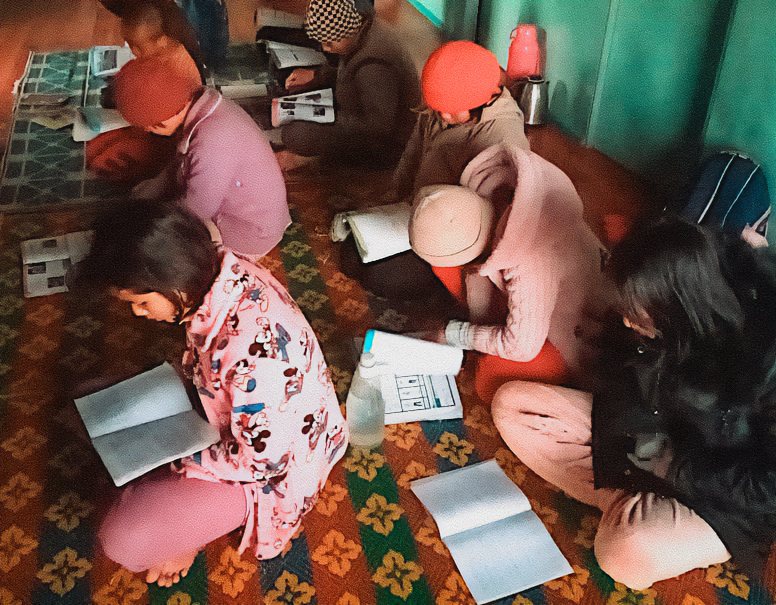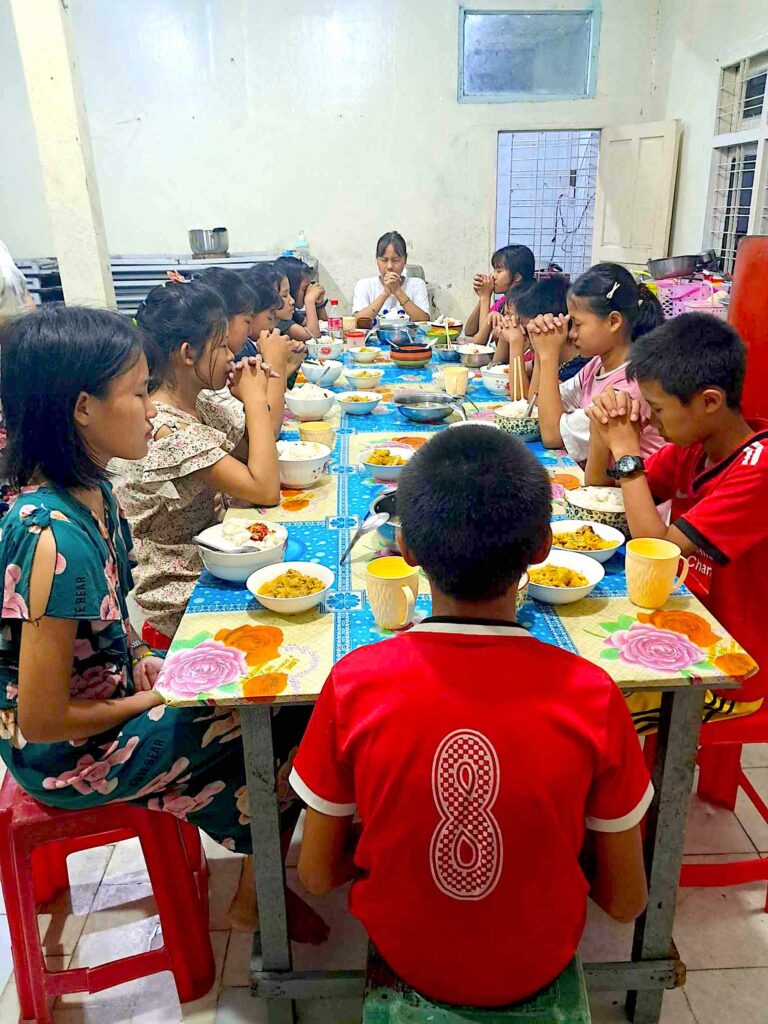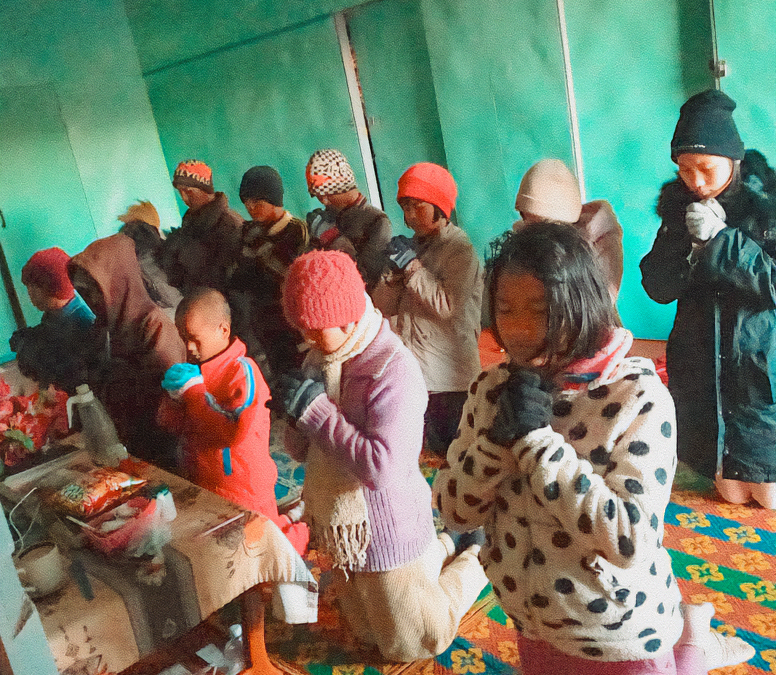Seeing the Invisible
It was in the slums of Myanmar’s Hlaing Tharyar township that Nun Hmung first saw the children wandering the streets. This industrial region on the outskirts of Yangon, Myanmar’s bustling capital city, is a difficult place for Myanmar’s children. The overwhelming majority of children live below the global poverty line, and many live under the national poverty level as well. In a great act of faith, a beautiful move given his personal rise from spiritually-disinterested lumberjack to graduate of an American seminary, Nun started Myanmar Evangelical Bible College in Yangon. He aspired to train a new generation of Burmese Christian leaders to serve their people. Reaching out to the children in the slums was the first major act of service on Nun’s heart.
The students at the Bible college did not have many material resources. Many were from similar backgrounds, working low-wage jobs to stay afloat, but all had a burning desire to grow in the Christian faith and show the love of Christ to their neighbors. They started by pooling resources to provide food, clean water, hygiene instruction, and tutoring services to the children. They also shared their rich spirit of fellowship, prayer, and encouragement. Soon, Myanmar Evangelical Church and a growing number of other house churches – offshoots of the Bible college – began an orphanage. It started small – only ten children at first. Some had Buddhist relatives or friends’ parents supporting them who saw the good work the school was doing for the children. Nun had to turn some children away for a lack of physical space.
Adjusting to Change
Then COVID-19 hit. Myanmar Evangelical Bible College had to cease operations immediately by government requirement. Some students sought typical employment, some began working for ministries, some pursued further study elsewhere. But the pandemic gave Nun greater opportunity to expand his orphanage. Local authorities recognized that Nun’s orphanage was a safe and supportive place for the children in a time when many other avenues of assistance were closing down. In 2020, less than three percent of children in Myanmar were covered by social protection. The orphanage was meeting their basic needs, but they still faced the constraints of living in a place of high poverty. Myanmar is one of South East Asia’s poorest countries. Human rights organizations have described a frightening situation for children: kidnapping, gender-based violence, lack of access to schooling and healthcare, and malnutrition. Decades of civil war have taken a heavy toll on the nation’s children.

Nun Hmung
“Brought Together by God”
Despite this situation, the children at the orphanage have largely resumed public school attendance by day, returning to the orphanage in the evenings. Much of the culture of the Bible college has energized the orphanage as well. Nun explains that they pray together every morning and every night, making as much use of the small meeting room they have. They use a donated van to take the children to visit local sights, always an exciting occasion. They share a tight bond: “We live together, we eat together, we go together, just like my real family…. We feel that we are brought together by God.” There are currently 24 children in the orphanage, living with Nun’s wife and two children. When Nun knows a child has a safe relative or one parent (known as a “single orphan” situation) who can support them, he sends them back.

Nun Hmung
“We live together, we eat together, we go together, just like my real family…. We feel that we are brought together by God.”
Although the strictest of COVID-19 restrictions have been lifted, Nun has had a frustrating time regaining government approval to resume the Bible college’s operations. But while he waits, the orphanage continues to provide a resource in a tumultuous and unstable economic and political landscape. The government demolished the slums in the township a while ago. Some makeshift housing has replaced it, but violence and theft are still frequent problems. Thieves even steal the power lines outside Nun’s house. In general, people are suspicious of government leaders as well, Nun says. “These times we are scared,” he explains. “We are suspicious of everyone. We cannot trust each other in these times.”
Bringing More Light
EFM has an opportunity to strengthen its existing partnership with Nun’s ministry. Several years ago, Colby May, with the assistance of a church partnership, provided solar-powered lights to Nun’s ministry. Nun has donated both to graduated Bible college students whose own ministries needed them more. When I spoke with Nun, he shared his desire to raise up a stronger generation of Christian leaders. But even their prayer meetings and teaching times often happen in the dark. Their generator is as inconsistent as the power grid. He shared that they are “praying for other means of electricity.” By providing even a single light, the children can sing and pray and learn and see the joy and hope on each other’s faces. “I hope when they go out from here that they are [trained like] Bible school students,” Nun said. Energy for Mission can make this happen.
One solar-powered lighting system costs $1000. Will you generously consider providing $15, $25, $50, or $100 to bring some hope and dignity to the children Nun serves?



Recent Comments